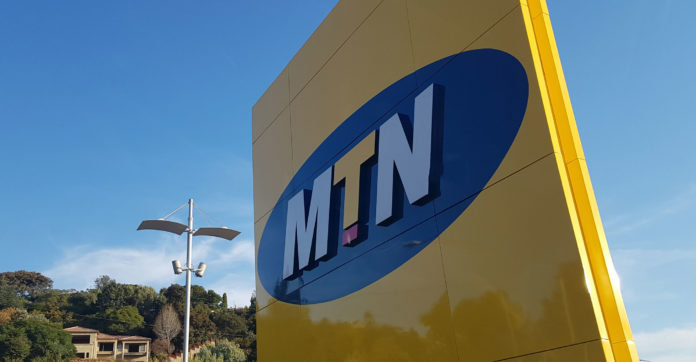
In line with the declaration of MTN Ghana as a significant market power (SMP), the National Communications Authority (NCA) wrote to MTN asking them to do five things as part of steps to correct the imbalance in the telecoms market.
Broadly, the NCA proposed measures that include the following:
- The application of a 30% asymmetrical interconnect rate for two years;
- A price floor/ceiling on voice, data, SMS and Mobile Money;
- The review and approval of all MTN pricing by the NCA;
- The removal of on-net/ off-net price differentials; and
- The implementation of a national roaming scheme.
Interconnect rate
The application of the 30% asymmetrical interconnect rate means that, for the next two years, what the other operators have to pay MTN per minute or per text message for sending traffic from their subscribers to those on MTN would be 30% less than the rate MTN pays to send traffic to those other networks.
Experts say it theoretically would be a way to compensate for the fact that the other operators send much more traffic to MTN than they receive from it – in other words, most of the other operators’ customers send a lot more traffic to MTN customers because of the MTN market share.
Indeed, it is estimated that about 70% of all phone calls in Ghana terminate on the MTN platform. The figures may be similar for SMS and data traffic as well; which would then mean, at the interconnect reconciliation, every telco pays MTN, but MTN does not pay anyone. But with the proposed corrective measure, this might change.
This is also a method often use to help new entrants into the market not to use all their little earnings to the already existing telcos in the form of interconnect payments, since most customers of the new entrants call people on other networks from the initial stages.
This rule was applied to Glo when the first came to Ghana. They used to pay a subsidized interconnect rate to the other telcos because they were new.
But industry analysts think, while this is a common remedy for market distortion, it’s laughable in Ghana’s case because government charges CST (Communication Service Tax) on interconnect payments between operators, making it double taxation for inter-network calls.
“That’s an anti-competitive policy which hurts the non-MTN operators, but Ghana government doesn’t care because it’s revenue for them,” an industry expert told Techgh24.
Price Floor
MTN is also supposed to have a price floor on voice, data, SMS and mobile money, which means MTN cannot do bundles and promos to give customers any price less than their stated default rate, until NCA allows it.
Again, MTN would have to submit every pricing plan or package to the NCA for approval before they can implement. If NCA says no, they cannot implement.
This have implications for MTN customers. MTN can only charge them the stated default rate; so, they can long have those numerous packages like Mash Up, Midnight, Kokrookoo, Social Media bundles and the other packages that give lesser call, SMS and data rates. It will be a one-size-fit-all rates for all customers.
On-net off-net differentials
The removal of on-net and off-net price differentials means that there should not be any difference in call and SMS rates between an MTN to MTN communication and a call/SMS from an MTN number to any number on the other networks.
Often telcos give cheaper on-net rates, via numerous bundles and promotions, so that customers will get more value when communicating between each other on same network; that way they are able to compete better against other telcos. But this SMP regulations means MTN is being asked to stop any such schemes.
National Roaming
Government is also insisting on a national roaming scheme that would mean MTN and all other telcos must open up their networks and allow customers of other networks to get connectivity in areas where the network they belong to does not have reception or coverage.
So, if a Vodafone customer, for instance, goes to an area where there is no Vodafone coverage, but there is MTN coverage, MTN is required to allow that Vodafone customer to access their network and be able to communicate via both voice and data. MTN can then sit with Vodafone and agree on the roaming fees.
Lawsuit
But all those are on hold because MTN went to the High Court to seek judicial review, citing breach of procedural fairness, on grounds that the NCA breached it own Act by not giving them (MTN) fair hearing even before declaring them SMP.
They therefore asked the court to prohibit the NCA from implementing the corrective measures stated above and also render the SMP declaration unlawful.
The court however dismissed MTN’s case, saying that the NCA did not break any law in declaring MTN SMP and initiating steps to correct the imbalance in the market.
Meanwhile, MTN has gone back to court, but this time, to the Supreme Court, insisting that the issues it presented to the High Court are still existent so they are seeking finality from the apex court.
MTN is even seeking additional reliefs at the Supreme Court, not just the matter of breach of procedural fairness, but even the substantial issue of the unlawfulness of naming it an SMP.
As to whether NCA will get to implement the corrective measures stated above or not, now depends on whether MTN might be successful at the Supreme Court or not; unless MTN has something under their sleeves beyond the Supreme Court.
Meanwhile, MTN Ghana CEO, Selorm Adadevoh has said that if the NCA agrees to an amicable approach to the issue, they would prefer that to dragging the matter in the law courts.
In the MTN Group half-year report, they stated that MTN Ghana is a responsible market player in a highly competitive market like Ghana’s and they do not engage in anti-competitive behaviour.









